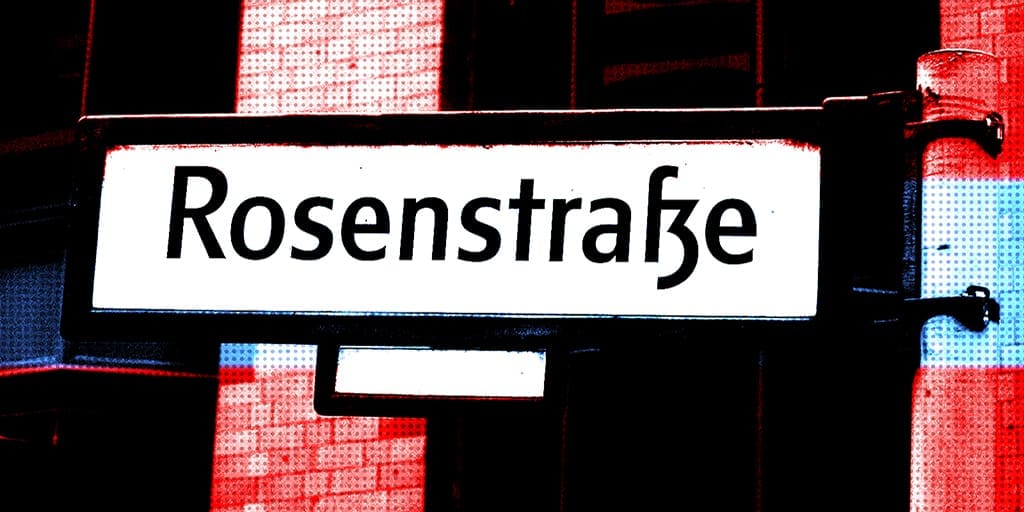The Rosenstrasse Protest: A Triumph of Humanity
A Triumph of Humanity and the Rosenstrasse Protest
The Rosenstrasse Protest, which took place in Berlin during February and March 1943, stands as a powerful testament to the resilience of the human spirit in the face of tyranny and oppression. This extraordinary demonstration, primarily led by non-Jewish German women, serves as a remarkable chapter in the history of World War II and the Holocaust. The protest not only showcased the potential of peaceful resistance against a brutal regime but also highlighted the complexities of identity, empathy, and the enduring human capacity for compassion.

Table of Contents
Understanding the Significance of the Rosenstrasse Protest
To understand the significance of the Rosenstrasse Protest, it is crucial to grasp the broader context of Nazi persecution during World War II. By 1943, the Nazis had already implemented their “Final Solution” plan, which aimed to systematically exterminate European Jews. Millions of Jewish individuals had been deported to concentration camps and killed in gas chambers. The horrors of the Holocaust were unfolding on an unprecedented scale.
In Berlin, the Jewish population had been subjected to forced labor, deportations, and persecution for years. Jewish men, women, and children were living in fear of imminent arrest and deportation. It was in this climate of terror that the Rosenstrasse Protest emerged.

The Spark of Resistance
The Rosenstrasse Protest began on February 27, 1943, when the Gestapo (the Nazi secret police) arrested and detained approximately 1,700 Jewish men married to non-Jewish German women. These men were held in a building on Rosenstrasse, a street in central Berlin. The Nazis planned to deport them to the East, where their ultimate fate would likely be death in a concentration camp.
What makes this protest unique is that it was not led by a formal resistance organization or a charismatic leader but by ordinary women who had Jewish German husbands. These women, many of whom had been living in mixed marriages for years, refused to accept the deportation of their loved ones without a fight.

The Power of Women
The women who gathered on Rosenstraße (“Avenue of Roses”), were not seasoned activists or political agitators; they were ordinary wives, mothers, and daughters who simply could not bear the thought of losing their husbands and loved ones to the Nazi regime’s brutal machinery. Their actions demonstrated the extraordinary power of everyday people when they come together with a common purpose.
These women faced significant risks by openly protesting against the Nazis. The Gestapo was a ruthless and efficient organization, and any form of resistance was met with swift and brutal reprisals. Despite the dangers, the women remained steadfast, holding daily protests outside the building where their husbands were detained.

The Demand for Freedom
The protesters demanded the release of their Jewish husbands, making it clear that they would not leave Rosenstrasse until their loved ones were set free. They faced off against armed SS guards, braving the cold and uncertainty to make their voices heard. Their determination sent a powerful message to the Nazis: the strength of love and familial bonds could not be broken by the regime’s terror.
The Nazis, initially taken aback by the persistence of the protesters, were unsure of how to respond. They feared that a violent crackdown could escalate the situation and draw further attention to the protest. As a result, the women’s resolute and peaceful actions presented the Nazis with a dilemma.

The Victory of Empathy
One of the most striking aspects of the Rosenstrasse Protest was the unexpected display of empathy from some quarters within the Nazi regime. While the Gestapo and other Nazi authorities were initially resistant to the demands of the protesters, there were individuals within the bureaucracy who expressed sympathy for their cause.
Notably, several high-ranking officials, including Albert Speer, Hitler’s Minister of Armaments and War Production, and Joseph Goebbels, the Minister of Propaganda, were apprehensive about the potential backlash of deporting Jewish men married to non-Jewish women. They feared that such actions could sow dissent among the German population and damage morale on the home front.
Furthermore, there were reports of tension within the Nazi leadership regarding the treatment of mixed marriages. Some officials argued that allowing exceptions for these marriages would undermine the regime’s racial policies, while others believed that it was strategically advantageous to maintain social cohesion and prevent domestic unrest.
Ultimately, the combination of external pressure from the protests and internal dissent within the Nazi hierarchy contributed to the decision to release the detainees. While it is essential not to overstate the influence of empathy within the Nazi regime, the Rosenstrasse Protest serves as a reminder that even in the darkest of times, there were some individuals who questioned the morality of the regime’s actions and sought to mitigate its most egregious policies.
The release of the detainees marked a rare instance of the Nazi regime capitulating to public pressure, albeit on a small scale. It demonstrated that even in a totalitarian state, the collective will of the people could influence government decisions. The victory of empathy at Rosenstrasse highlights the complexities of human behavior in times of crisis and challenges simplistic narratives of perpetrator and victim.

The Protest’s Legacy
The Rosenstrasse Protest achieved a rare victory against the Nazis. While it may not have halted the Holocaust or significantly altered the course of World War II, it stands as a symbol of resistance and the triumph of humanity in the darkest of times.
This protest reminds us that even in the face of seemingly insurmountable odds, ordinary people can make a difference when they unite for a just cause. The women of Rosenstrasse defied the stereotype of passive complicity that is often associated with the German population during the Nazi era. They showed that there were individuals willing to take great risks to stand up against injustice.

A Remarkable Chapter in History
The Rosenstrasse Protest is a testament to the enduring human spirit and the power of love, empathy, and resilience in the face of tyranny. The actions of these ordinary women, who risked everything to save their loved ones, inspire us to reflect on the choices we make in times of moral crisis.
This remarkable chapter in history reminds us that even in the darkest of times, there is hope. The Rosenstrasse Protest is a shining example of how the indomitable spirit of ordinary people can shine through, challenging the forces of oppression and cruelty. It serves as a beacon of hope, a reminder that even in the darkest hours, humanity can prevail.

























Leave a Comment